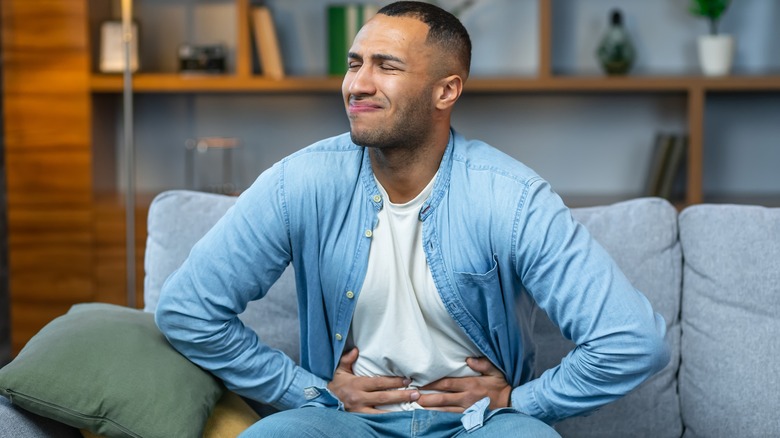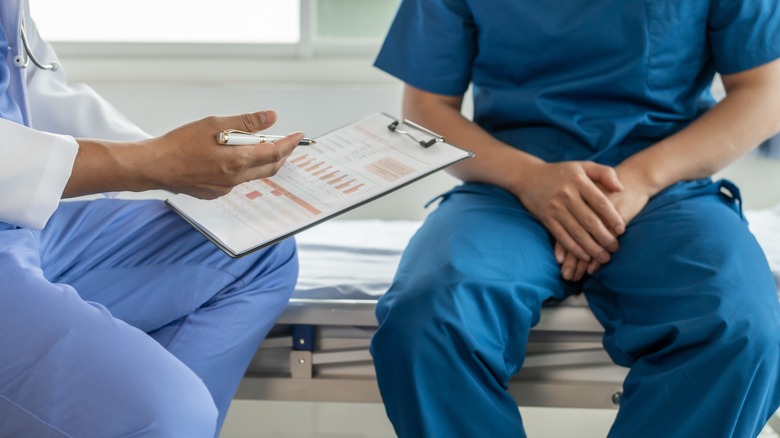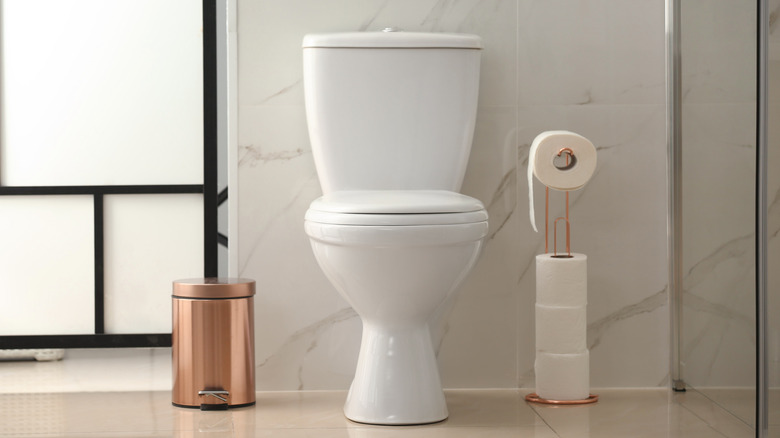What Happens To Your Prostate When You Don't Poop Every Day
Poop happens, or it should, about once a day or at least three times a week. Constipation happens, too. Constipation is relatively common, and it can be rather uncomfortable to feel sluggish or stopped up in your digestive system. If you're having constipation, it's often due to a lack of fiber, fluids, or exercise. Medications, a weak pelvic floor, or a blockage in your gastrointestinal system could also make you constipated. Constipation is also another fun symptom of getting older, especially for women.
For men, getting older means their prostate gets larger. While an enlarged prostate doesn't cause constipation, it often causes problems with urination such as incomplete emptying or incontinence. The prostate sits near the urethra, and when the prostate grows, it begins pressing against the urethra. The bladder then has to work harder to pass urine, and it can become swollen and press against the colon. As a result, you could experience constipation. On the other hand, constipation can worsen the symptoms of an enlarged prostate.
How constipation can affect your prostate
Your digestive system gets rid of your body's waste through your bowel movements. When constipation strikes, this waste gets backed up inside your bowel, producing and multiplying toxins, according to A. Vogel U.K. These toxins can seep into your nearby prostate, causing possible inflammation. Additionally, a full bowel can press against your prostate, which subsequently compresses your urethra.
Constipation can also influence your serum prostate-specific antigen (PSA) levels that are used to screen for prostate cancer. A 2012 study in the International Journal of Urology compared PSA values of constipated men with a control group. The constipated men had a one-point higher PSA level than the non-constipated group. Once their constipation was treated, their PSA levels were reduced. The researchers suggested that men address their constipation if their PSA levels are borderline high or between 2 to 10 nanograms per milliliter (ng/mL). Although it is rare, you could experience constipation if prostate cancer spreads to your bowel, according to Prostate Cancer UK. Constipation might also be a side effect of chemotherapy if you're being treated for prostate cancer.
Treating constipation
If your constipation is due to a change in your daily routine like traveling, give yourself a few days for your system to settle. Not eating enough fiber can stop up your bowels, so choose some foods that help relieve constipation such as apples, leafy greens, and legumes. When you add more fiber to your diet, you'll also need to add more water to bind to some of the soluble fiber. Water also makes your stool softer and easier to pass. Avoid dehydrating drinks like alcohol.
To get your bowels moving, it will help to get your body moving. When your heart starts pumping faster, the muscles in your digestive system wake up. If you feel constipated after a big meal, it might be best to wait a while before you exercise. However, if it's been a few days since you've pooped, aerobic exercise such as walking, running, or swimming on a relatively empty stomach might help.



